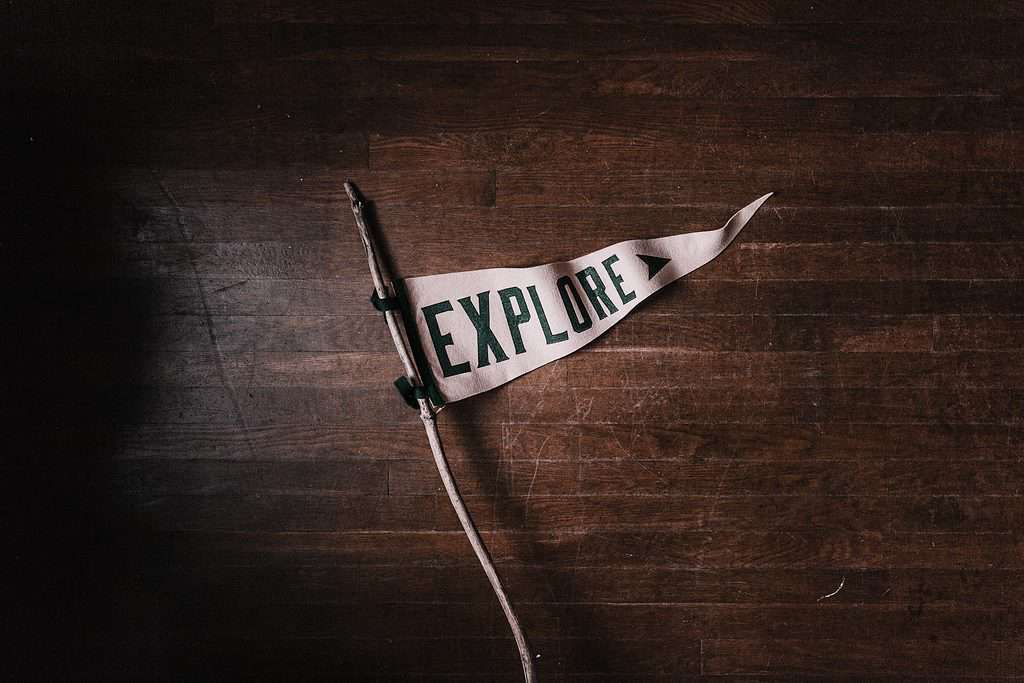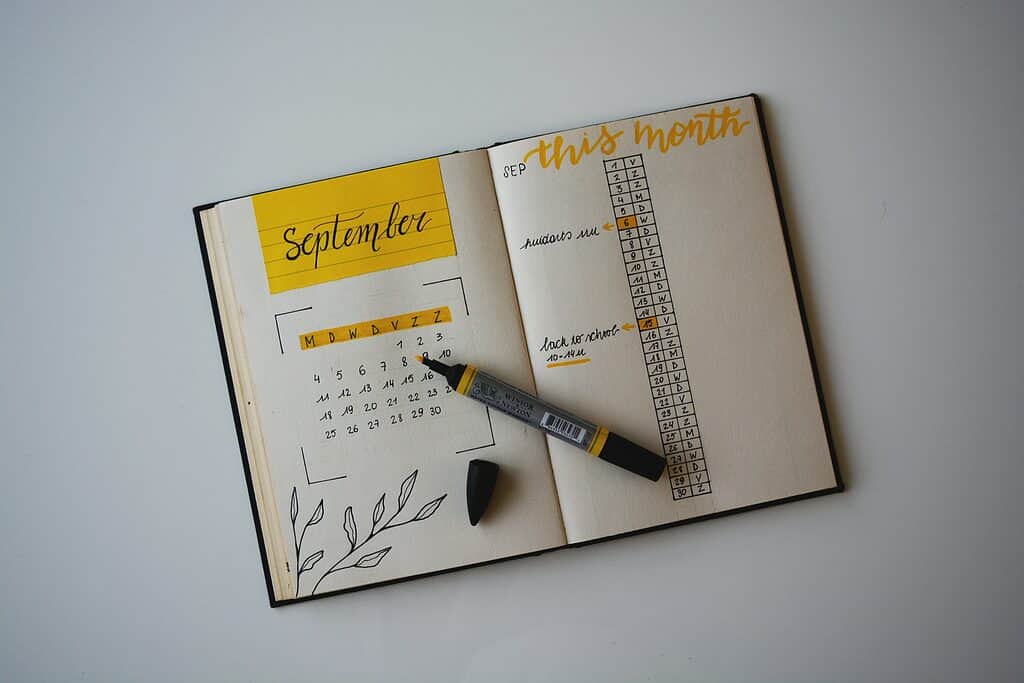How to Learn Finnish Fast – from Scratch to a B1 Level in 3 Months

Another cool thing about this case study is that I collected all of Kate’s emails throughout the course. They will give you a detailed picture of how drastically one’s approach to learning can change once they switch to different learning strategies and start violating memory principles.
This article also gives me yet another chance of showcasing a core philosophy promoted by the Universe of Memory.
Learning is mostly a lonely struggle. It’s what you do at home that really matters. Choose a bad learning strategy, or focus on the incorrect things and you can kiss your progress goodbye.
If that wasn’t enough, Kate also shares her advice about encouraging your family to join you in your language mission. It seems that the key strategy which has eluded me for years are thinly veiled threats of starving your significant other. Who would have thought?
Learn Finnish fast – the Pre-course Evaluation
One of the indispensable parts of the Vocabulary Labs course is a pre-course survey which I send to each member before the course starts. It helps me evaluate the state of knowledge of all the participants as well as their propensities and current learning styles.
Below you can find some of Kate’s answers from the said survey. Her original goal was to learn German, but at the very beginning of the course, she decided to change it to Finnish.
- What languages do you know currently and at what levels? Which one is your native tongue?
Russian is my native tongue.
I know English at C2.
I used to know French at B2-C1 and some Latin, but I’ve forgotten most part of both by now. Also, I tried learning Japanese and German, but I’m about A0 in them 🙂
- How much time can you devote to learning per day? Be as realistic as you only can.
About an hour if I’m enthusiastic, not more than half an hour if there’s no interest, but only my will power involved.
- How much time do you spend learning your target language every day? Please give me the approximate numbers for the following categories: reading, listening/watching, writing, talking.
I‘m not learning German now.
- What are you reading/watching/listening to?
I don’t read or watch much (if we speak about fiction or things like news and films), I listen to audiobooks. It isn’t because I don’t like reading or watching. The only reason is that I can listen doing something else at the same time, while reading and watching need total concentration (well, watching a film + crocheting is possible, but with reading even this is out of the question). The majority of what I read/watch is in English (articles, lectures, etc. on the Internet).
- Who do you talk to (teachers, friends, etc.)?
Students. But that’s in English. In German, I don’t talk to anyone.
- How do you learn and revise your vocabulary? What systems/apps/ websites are you using? (the more details the better)
To learn German, I used Duolingo. I did it because I was interested in whether a program can really teach you anything. It taught me a couple of things, but not much. To study some C2 vocab when I was getting ready to take my CPE exam, I used Quizlet. I created flashcards myself, but I didn’t use them much – it was rather boring.
- What do you (currently) like/dislike about language learning?
There isn’t anything that I dislike. Languages are part of my life and have always been. I just enjoy them.
- What are your strengths/weaknesses when it comes to learning? (discipline, concentration, etc.)
I remember and understand things quickly – these are my strengths. I drop things easily if I’m bored. This lack of persistence is my weakness.
- What are your favorite hobbies/pastimes?
Usually, I’m up to my ears in work, which is also my hobby. When I’m too tired of work, I just relax doing nothing.
- What is your current vocabulary size in your target language?
In German it’s about 100 words, I guess. Not more. Although I’ve never counted them. And they’re all my passive vocabulary.
- How many new words do you learn per day?
Zero.
- How do you currently learn grammar?
I don’t learn it in at all.
- What is the quickest you have ever learned a language?
A year – I was able to talk to a native speaker after a year of studying. But the level wasn’t high, so it all depends on what you mean by “have learned”. If it’s totally independent use of the language, like C1-C2, then my only achievement is English, and it took me many years to reach this level.
To finish answering, let me say that although I’m very curious about your system, I’m at the same time very skeptical about it. In other words, I don’t really expect much and regard it more like an experiment of some sort. I don’t remember when and how I found your first article about memory and language learning, but I certainly liked it, because I rarely subscribe to receive e-mails. So, I was very interested to find out that you’re launching this course. Judging by your articles, the course is going to be interesting, regardless of my expectations 🙂
Learn Finnish fast – Kate’s Progress!
Meet Kate!
Once the course starts, all the participants receive e-mail reminders about their progress. It helps me keep track of their learning pace and any potential problems. It also makes for a great read later on! These e-mails create an amazing narrative and show how much people, and their learning capacity, can change within just a couple of weeks.
Here are Kate’s e-mails.
Update #1 – Beating 2 months of learning with Duolingo in 5 days
Hi Bartosz,
I’d like to share my impressions of your course. At the very beginning, I was skeptical (and I wrote to you about it). Well, seems like I’m not skeptical anymore)) Bartosz, your E.V.A. method is mind-blowing (both literally and figuratively). Its simplicity and effectiveness are just amazing.
Now, more details. My initial aim was German, but right at the beginning of the course, I changed my mind. Since I’ve already tested how Duolinguo works using German, I decided to pick up some other language and see what I will achieve using your method. Then I was going to compare my Duolinguo achievements in German with the achievements in the new language. For the experiment, to be totally honest, I chose a language which looks absolutely alien to me: Finnish. It has nothing in common with the languages I know, since it belongs to a different family.
Duolingo experiment
My Duolingo experiment (which I carried out 2 years ago) lasted for about 2 months. I spent on it an hour or more daily. I learned some words and got some understanding of some grammar structures, but that’s about it. I don’t think I could say anything in that language except for the phrases which were repeated multiple times and which I simply knew by heart. I wasn’t satisfied with the results and deleted Duolingo after two months.
I started using your method on May, 5th. On May 10th I realized I’ve already achieved more than after 2 months of Duolingo. And that’s not because Finnish is easy and German is not. Actually, it’s the other way around. In German, there were notions easy to grasp since they’re similar to English in some way. Many words looked familiar, too. Finnish, ha-ha) Nothing in common either with Latin, or with English, or with Russian.
Maybe, pronunciation is easier, but nothing else. Still, I already know more than 100 words and CAN USE them. And it’s very inspiring, of course, to see this progress.
I didn’t believe at first that B1 in 4 months is achievable, but now I think it is pretty possible if I just keep doing it at the same pace (which is not highly demanding, by the way).
As for the biggest takeaway from the Grammar Module — that’s Deep Learning. I haven’t yet been doing it for long, but it already brings in the results.
Read more: Master Grammar of Any Language with Deliberate Practice.
Update #2 – First 1000 Finnish words and A2 level in 3 weeks
Hi Bartosz,
I’m happy to share my experience of using your course, which is very pleasant indeed.
First of all, yesterday I finished my first thousand of Finnish words (yes, I was waiting with this email just to be able to boast). 400+ of them are regarded by ANKI as mature. This would have never been possible but for the techniques, I learned from you. I do study grammar as well from time to time, but as it requires more concentration and can’t be done 5-10 minutes in the morning, then 3 minutes while the kids are playing in the sandbox, I study little grammar in comparison with vocabulary.
I’ve got a textbook in Finnish. I don’t use it, but what I do is open it once a fortnight and see if I can understand something in there. In the beginning, it didn’t make any sense, but now the first four or five units are pretty easy to understand.
Hungry for more
The method has changed my perception of language learning so much that sometimes I feel my progress is slow. At this moment I remember my words “I’d call reaching A2-B1 in 3-4 months a tremendous success”. I know this phenomenon of greediness from my students, and now I’m experiencing it myself. Funny, but when I was doing Duolinguo making no progress whatsoever, I didn’t feel that I was going too slow.
At the end of the third week of my experiment, I found an online placement test offered by some Finnish language school in Moscow. The result was that they suggested I join their second-semester group (which means I’d achieved in 3 weeks what they were studying for 4 months at the same price which I paid for your course).
Update #3 – 1500 Finnish Words + Convincing Her Husband to Learn as Well!
Thanks for monitoring the progress 🙂 I’ve learned a bit more than 1500 words (today it’s the 80th day of my learning), and I’m progressing further. This learning thing seems to be infectious: my husband started on Finnish, too. His pace is slower – just 5 words, but in spite of this, some progress can already be seen. Now I’ve got a partner to practice my skills during breakfast time :)) Totally free and always available.
2800+ Finnish words
Summer is over, a new school year has started, which means a lack of time. Well, no time at all, actually. So, I set my daily word limit to 10 (it used to be 20) just to make it doable. Right now the number of words I’ve learned is 2800, which is quite a lot. I decided to take a lesson with a native speaker to see if I will be able to speak. Yes, I’m able to speak and, which is even better, the natives can understand it! It’s more difficult to understand what they say, but I’m sure it’s a matter of practice. I’ve tried lessons with 2 different people, and both couldn’t believe that I’ve been studying Finnish for 4 months only (I took those lessons at the beginning of September, which was exactly 4 months since I started this language from scratch).
Plans to take the officialYKI test
Now my plan is to try taking their YKI test. It takes place only in Finland, but the more I learn the eager I am to visit that country. And if I visit it, why not taking the exam? There are three levels on which you can take it: A1-A2, B1-B2, C1-C2. I’m thinking of taking B1-B2. I would attempt at C1 if it weren’t for my extra-busy teaching time till the end of May. I just won’t be able to find the necessary time. However, B2 looks achievable.
Best wishes,
Kate
P. S. “B2 looks achievable”. In a year. God, who could have thought I’d ever say this…
A Short Interview With Kate
While writing this case study, I was also able to catch up with Kate and ask her a couple of questions about learning and her family. It’s truly inspiring to see how much effort and sneakiness she put into encouraging them to learn Finnish fast as well!
What do you do?
I’m a teacher of English. I’ve been teaching for 15 years. I have experience of working at school, but for the last ten years, I’ve been a freelance teacher.
Why exactly did you decide to learn Finnish instead of German?
I’ve chosen Finnish because at first learning it was part of an experiment. I was interested to find out whether the system you suggest really allows people to learn languages faster than usual. For this purpose, I needed a language which is different from the ones I was familiar with.
Since I studied Latin, such languages as Italian, Spanish, etc. were out of the question — being familiar with Latin makes it easier to learn them, so it wouldn’t have been clear whether it’s Bartosz’s system working or just my experience. German is in certain ways similar to English. Moreover, by the beginning of the experiment, I had already tried learning German, so this language wasn’t new either. So I was looking for a language from a different language family. Finnish, which is a member of the Uralic family and looked totally alien to me at the beginning of my experiment, was a perfect choice.
My 2 cents: That’s a great approach. It’s really to fool yourself into believing that you can learn fast if you learn a language that is similar to the ones you already know. For years, while I have been devising my learning strategies, I used languages which I knew nothing about to minimize any background knowledge interference.
Did you have to force your husband to learn Finnish or was it his choice :)?
Yep. I told him I wouldn’t feed him if he didn’t start learning at least 5 words a day. Speaking seriously, I didn’t force him, but it wasn’t his choice either. I started by creating an ANKI profile for him and added 3 words there every day.
It took less than a minute to revise them during breakfast time, and in about ten-fifteen days he realized he could say simple phrases. It inspired him and he asked me to increase the number of words up to 5. Then 7. Then 10. Then he started reading to learn some grammar and listen so some dialogues on Finnish sites. So that’s how it happened.
My 2 cents: Let’s take a second to appreciate Kate’s brilliance. She didn’t wait until her husband makes up his mind. Instead, she created a separate ANKI account and flashcards to kickstart his progress. Sure, it would be better if he produced them himself. the thing is that probably he wouldn’t have if it hadn’t been for Kate’s initiative. If you’ve been contemplating how to force your loved ones to take up a new language, you might benefit from this strategy.
Do you currently have some opportunities to use the language? If not, how do you maintain it?
Right now, I don’t have many opportunities to use the language unless I read/listen to something or exchange a couple of phrases with my husband. I used to have 1 lesson a week with a native speaker (I started in September to see whether I would be able to understand something and make myself understood, I liked the person I talked to, so I continued the speaking sessions till February. In February I had to quit because I was fully concentrated on my work).
Do you use methods from Vocabulary Labs at your work? Did they affect the results of your students? How?
Yes, I used the methods. One of the methods (or ideas, probably) that I used was to set a certain minimum of what has to be learnt/done every day. I prepared the materials in such a way that the goal of doing them every day was achievable pretty easily. It resulted in my students having covered LOTS of stuff. Much more than was covered by those who studied less systematically.
Another one is, of course, ANKI. I explained to the students how to make cards. Some of them started using it right away, others didn’t want to. I didn’t insist much. In about 3 months it was easy to detect who was and who was not using ANKI without even asking them. The formers’ level grew much more rapidly.
My 2 cents: That definitely sounds familiar. Even after one week of private coaching, I can already hear whether my clients use ANKI or not.
Do you use the said methods in your daughter’s education? How exactly does it look like?:)
The only method I’m using in my daughter’s education is ANKI. We just use it to learn words. For example, when we watch a cartoon or just talk about something while walking and this or that word pops up, we write a sentence with it in ANKI (and a picture! you can’t make a card without a picture, it’s almost a crime).
My daughter’s pace is 3 words a day, but we often skip writing new words (not because she isn’t willing, but because I’m a lazy and irresponsible mother). She never skips revising, though. She can’t read in English yet, so I read the sentence aloud making a pause where she has to insert a word. Sometimes she makes sentences herself for the new cards.
About a month ago she asked me whether she could have lessons with someone who speaks English. I found a teacher on iTalki, and now they’re having lessons. I write out the words which are an active vocabulary for the lessons, and then my daughter learns them. If not for this learning, the lessons would mainly be a waste of money (as well as my speaking sessions in Finnish). Backed up by ANKI, however, they are fine: my daughter enjoys talking to someone from far away and understands more and more. I used to have lessons with my daughter last year. She’s a quick learner, but now she’s progressing quicker than she used to.
My younger daughter (3.8 years old) is always near my elder one when she’s revising. Side effect: the younger one knows half the words, too.
My 2 cents: I am raising my son (22 months) bilingually ,and I am also optimizing his words repetitions with ANKI. Of course, he is way too small to do it himself, being the lazy bugger he is, but I do it for him to optimize his learning curve.
What are the three main takeaways you learned from Vocabulary Labs?
1) I found out that learning a language can be amazingly quick. Finnish is more difficult than any other language I’ve come across so far (ok, Latin can compete, but it’s a dead language), yet the pace with which I learned it was quicker than, for example, French. Knowing that a language can be learned fast is, actually, a very important takeaway. It motivates and gives hope thus making me succeed.
2) The one that I’m using in my work: better take a small step every day than sit for 10 hours once a month.
3) ANKI. Needless to comment I suppose.
3a) Switching my mobile to Finnish. It’s a tiny detail, but it reminds me of what I’m supposed to be doing every day.
Actually, I have forgotten many things from the course since it’s very big. Now that I have some free time, I’m going to revisit it 🙂
Are you planning to learn another language anytime soon?
I’m not planning, but dreaming of learning Swedish as soon as I reach B2 in Finnish (which I hope will happen by the end of summer if everything goes as planned).
Finnish From Scratch to a b1 Level in 3 Months – the Learning Plan
In this section, you can find a rough plan which Kate used in order to learn Finnish fast to a B1 level as verified by a language school. As a reminder, if you’re looking for a more detailed version of this blueprint, please read another case study of mine “How to learn German from scratch to a B2 level in 5 months“.
Let’s start with the learning resources Kate has used to accomplish her mission.
Finnish Learning Resources
Kate only four things:
- ANKI
- Frequency lists (in the form of ANKI decks)
- Websites to find native speakers to talk to
- FinnishPod101
I can only smile when people shake their heads in disbelief upon hearing that you don’t need more than a handful of resources to learn a language. Interestingly, the opposite is true. The more learning resources you use, the smaller your chances of being able to use them efficiently. What’s terrifying, even one small piece of paper which you scribble on can be counted as a separate resource. That’s not an exaggeration. That’s a fact.
The Best Anki Decks for Finnish Vocabulary
One of the fastest ways to learn a language is to start with vocabulary lists. Here are the best English-Finnish ANKI decks I have been able to find.
Please keep in mind that those lists are supposed to be a basis for your own ANKI deck. Nothing can replace the effort you put into creating your own flashcards and sentences.
This deck should be enough to take you from zero to about a B2 level. It also includes examples and audio.
- 10 000 Finnish sentences sorted from easiest to hardest [1/1] (3000 words)
- 10 000 Finnish sentences sorted from easiest to hardest [2/2] (7000 words)
- Finnish Core 1841 Word List (without translation but with pictures)
And here are other noteworthy frequency lists of Finnish words:
How to Talk With Finnish Native Speakers for Free
Organized lessons are, of course, a great idea. However, in the era of the internet, it’s absolutely not necessary to pay for them in order to talk with native speakers.
Here is a list of great websites where you can arrange language exchange with language enthusiasts.
My absolute favorite is definitely Italki. This is also the website that Kate has used to find a language partner.
- Italki
- Speaky
- MyLanguageExchange
- Speaky
- PoyglotClub
- Tandem
- Conversation Exchange
- Coachsurfing
- TandemPartners
- Coeffee
- Easy Language Exchange
- LingoGlobe
- CoffeeStrap
Finnish From Scratch to a b1 Level in 3 Months – What to Do
Finnish From Scratch to a b1 Level in 3 Months – the Learning Plan – Summary
Way too many people think that learning boils down to devoting vast swathes of time to your learning projects. Nothing could be further from the truth. In reality, effective learning is all about energy and effort you put into your learning. Very often one hour of honest work can beat 10 hours of bumming around. If you add effective learning strategies to this mix, rest assured that your progress will know no bounds.
Do you want to ask me or Kate something about this mission? Let us know in the comments.
Vocabulary Labs
Interested in all the methods and strategies that we have used to learn German within that time? Check out my language course Vocabulary Labs. You can read dozens of similar testimonials here. It has been used by hundreds of learners to master over 40 different languages.





